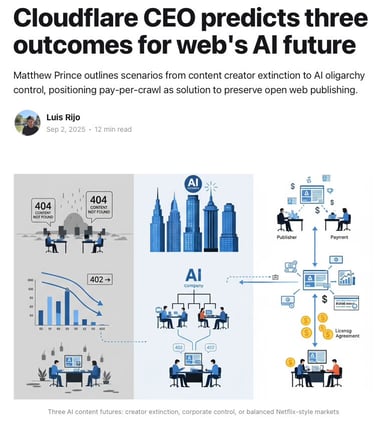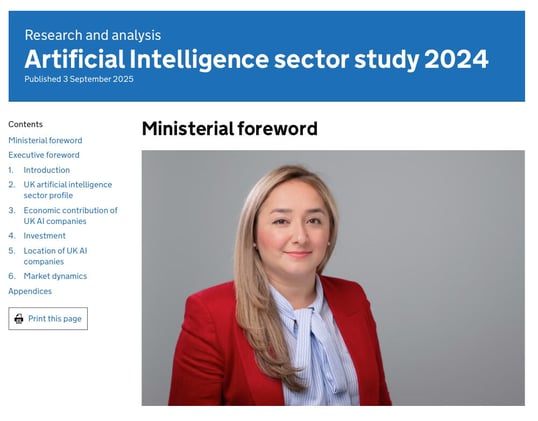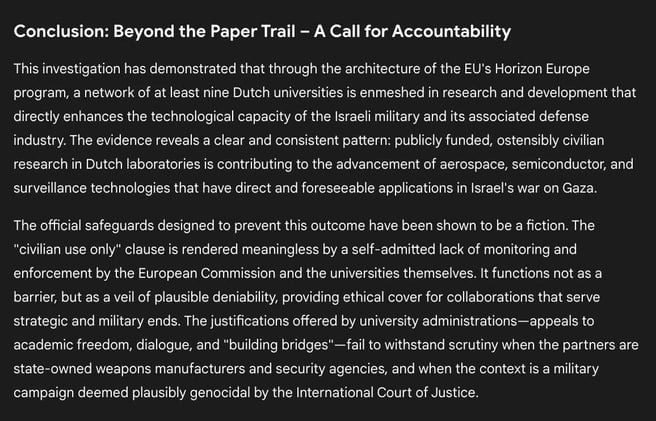- Pascal's Chatbot Q&As
- Archive
- Page 32
Archive
Ten federal judges expressed concern and deep frustration over the Supreme Court's recent trend of overturning lower court decisions—especially those that challenge the Trump administration.
These concerns are amplified by increasing threats against federal judges and a growing perception that the high court is enabling executive overreach and undermining the integrity of the judiciary.

This extraordinary legal salvo from 44 Attorneys General sends an unambiguous message to AI developers: child safety is non-negotiable. The age of AI innocence is over.
AI companies must act—not just to avoid lawsuits, but because the stakes are human lives. If they fail to respond decisively, regulators across the world may not be as forgiving.

A new legal frontier is emerging: downstream liability for enterprises and users who deploy or commercialize the outputs of AI models trained on pirated/stolen stuff.
GPT-4o: Companies using outputs from genAI models could face claims of derivative copyright infringement (especially if companies benefit commercially) even if the model was developed by a third party.

The EU court’s approval of the new data transfer pact may offer short-term stability for global commerce—but it comes at the cost of democratic control, legal accountability, and individual autonomy.
If the past is any guide—from Trump’s disregard for civil liberties to Palantir’s data-mining prowess—the risks are not theoretical. They are imminent, systemic, and increasingly normalized.

GPT-4o: Cloudflare's Matthew Prince has correctly diagnosed the economic disequilibrium wrought by generative AI on the web and proposed one of the first actionable infrastructure responses.
However, his analysis would benefit from a stronger focus on training data rights, regulatory alignment, and content provenance—issues that are especially critical for scholarly publishers and authors.

United Kingdom: AI revenue grew 68% in one year to £23.9 billion; employment jumped 33% to over 86,000 jobs; and foreign direct investment exceeded £15 billion in 2024 alone.
But beneath these impressive numbers lie critical complexities, subtle controversies, and strategic blind spots—particularly for rights owners, creators, regulators, and AI makers operating in the UK.

Gemini 2.5 Pro: At least nine Dutch universities are actively engaged in research and development that directly benefits the technological capabilities of the Israeli military.
A systemic and acknowledged lack of oversight, combined with the inherently dual-use nature of the tech being developed, renders these collaborations a form of material support for military operations

GPT-4o: AI class action against Apple isn't about stifling innovation. It’s about enforcing the principles of IP in an age where mass scraping & opaque model training practices have become the norm.
It challenges one of the world’s largest tech companies to reconcile its commercial ambitions with the rights of creators whose works underpin the generative AI revolution.

A $1.5 Billion Warning to the AI Industry – Unpacking the Anthropic Copyright Settlement
With a non-reversionary fund of $1.5 billion and the destruction of pirated training data, this case sets a powerful tone for how courts may respond to AI’s unauthorized use of copyrighted content.

The coordinated legal and strategic response by French press organizations marks a turning point in how legacy content industries confront the risks posed by generative AI.
It is bold, timely, and rooted in legitimate economic and democratic concerns. However, it is not sufficient on its own.

AI tools can now process millions of claims documents and detect fraud with unprecedented speed and accuracy – some reports show 70% document interpretation accuracy in near real-time settings.
Insurers may be reinforcing inequality: digital-first experiences and dynamic pricing models could leave vulnerable communities without affordable access to insurance.

WB v. Midjourney: Perhaps most striking is the fact that even generic prompts—such as “classic superhero battle”—can yield unmistakable likenesses of Warner Bros.' most iconic characters.
The complaint alleges Midjourney knowingly encouraged this use by: Promoting its service using infringing images; Removing moderation guardrails after briefly enforcing them; Launching Midjourney TV.












